Vehicle emission testing is a regular part of any Georgia car owner’s year. Every year, we’re required to take our cars in and have them tested for emissions as part of our annual registration. But what are vehicle emissions and why are they important?
What are Vehicle Emissions and Why Are They Important?
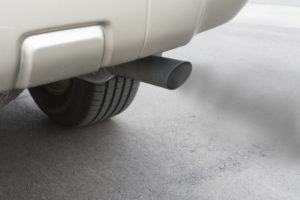 Vehicle emissions refer to the colorless, odorless gases produced by your vehicle during normal operation. Emissions are the result of an incomplete combustion of gasoline or diesel and air. Emissions contribute to pollution and smog, which you can often see over the Atlanta skyline, especially during the summer.
Vehicle emissions refer to the colorless, odorless gases produced by your vehicle during normal operation. Emissions are the result of an incomplete combustion of gasoline or diesel and air. Emissions contribute to pollution and smog, which you can often see over the Atlanta skyline, especially during the summer.
Newer cars have on-board computers known as Emissions Control Systems, which are designed to optimize the air-gas consumption ratio. This feature not only improves fuel economy, it reduces the amount of emissions produced by the vehicle, which in turn means less exhaust and a cleaner environment.
The government has established air quality standards that all vehicles must meet. Cities and states have further varying requirements that are regularly checked by way of vehicle emissions inspections. Air pollution can be greatly decreased when all vehicles are operating within these standards.
Why do Cars Fail Emissions Tests?
Despite all the technology that goes into vehicles to keep them running as cleanly and efficiently as possible, cars sometimes fail emissions tests. There are many reasons that this can happen.
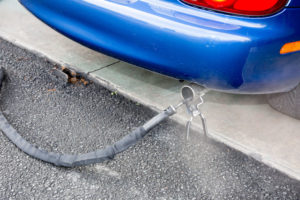
Common causes of emissions test failures include:
- Malfunctioning oxygen sensor
- Malfunctioning EGR valve
- Poorly-fitting or broken fuel cap
- Leaks in the vehicle’s vacuum system
- Misfiring spark plugs
- Dirty air filters
- An illuminated ‘Check Engine’ light
Emissions inspectors check for several different things during a vehicle emissions test. Generally, they will look at the gas cap, any dashboard warning lights, leaking fluids, and any smoke produced by the vehicle. In addition to these, they will test the engine itself to determine whether the vehicle is operating within regulated standards.
An emissions inspection usually takes less than half an hour. The exact process depends on the year of your car, and new technology is changing the way that testing is done every year.
Cars older than 1996 are lifted onto a specialized ramp to simulate normal driving while a sensor is inserted into the tailpipe. The engine is revved, and within a few minutes, the computer inside the center has enough information to determine whether the car passes or fails the test.
Cars newer than 1996 can often be plugged directly into a computer system, no lifting onto a ramp or engine revving required. The computer system is scanned to detect whether any of the control components within the vehicle are functioning incorrectly, and if these components lead to excessive emissions output. This process takes less than ten minutes.
Have Your Engine Checked at T3 Atlanta Before Your Emissions Test
If your car has recently failed a vehicle emissions test, or if your registration renewal is coming up and you want your car to pass with flying colors, make an appointment with T3 Atlanta. We are Toyota, Lexus, Nissan, and Infiniti specialists in Atlanta. We’ll inspect your vehicle and ensure that your engine is in top condition so your car will pass emissions testing with ease.
 The reality is that each car has an individual control system that relies on a combination of GPS, radar, lasers, and cameras to judge what’s around it. This includes pedestrians, obstacles, obstructions, other cars, and any other scenario that might crop up on the road.
The reality is that each car has an individual control system that relies on a combination of GPS, radar, lasers, and cameras to judge what’s around it. This includes pedestrians, obstacles, obstructions, other cars, and any other scenario that might crop up on the road. At this time, fully roboticized cars do not exist. As the technology continues to develop and improve, driverless cars will continue to have steering wheels, brakes, and a manual override, as well as seatbelts for passengers. These are known as ‘redundant systems’ and allow passengers to regain control of the vehicle in the event of a situation that the car cannot interpret.
At this time, fully roboticized cars do not exist. As the technology continues to develop and improve, driverless cars will continue to have steering wheels, brakes, and a manual override, as well as seatbelts for passengers. These are known as ‘redundant systems’ and allow passengers to regain control of the vehicle in the event of a situation that the car cannot interpret. There are lots of benefits to consider when it comes to self-driving cars. They have the potential to:
There are lots of benefits to consider when it comes to self-driving cars. They have the potential to: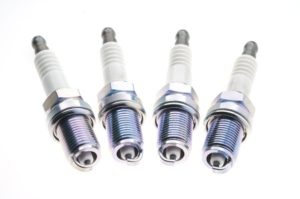 Normal: ‘Normal’ or ‘standard’ spark plugs are generally tipped with a copper coating. These wear down fairly quickly, with an average lifespan of 20,000 – 40,000 miles. The biggest benefits of copper-tipped spark plugs is that they are affordable and run at cooler temperatures than spark plugs with exotic metal tips.
Normal: ‘Normal’ or ‘standard’ spark plugs are generally tipped with a copper coating. These wear down fairly quickly, with an average lifespan of 20,000 – 40,000 miles. The biggest benefits of copper-tipped spark plugs is that they are affordable and run at cooler temperatures than spark plugs with exotic metal tips. If you don’t have an owner’s manual, you can always find the specifications at your auto parts store. You will need to know the following information:
If you don’t have an owner’s manual, you can always find the specifications at your auto parts store. You will need to know the following information: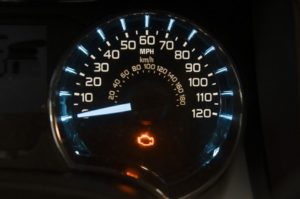 Engine is idling roughly
Engine is idling roughly You may know the Toyota Prius, which is the car that started the hybrid vehicles revolution, but you probably don’t have a clue about the
You may know the Toyota Prius, which is the car that started the hybrid vehicles revolution, but you probably don’t have a clue about the 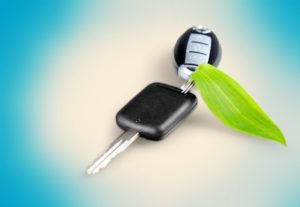 One of the changes being made to the
One of the changes being made to the 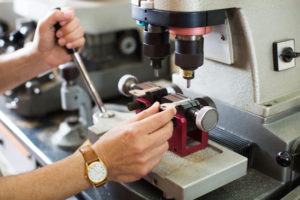 Unfortunately, some people face the problem of lost car keys and absolutely no spare of any kind, so they can’t use the vehicle until they pay for a new key. The simple fact is it can take some time to have a new key made, plus cost a fair amount of money. Getting a key quickly can ratchet up the price significantly, especially at night, on a weekend, or during a major holiday, so if you can hold out there’s a definite reward.
Unfortunately, some people face the problem of lost car keys and absolutely no spare of any kind, so they can’t use the vehicle until they pay for a new key. The simple fact is it can take some time to have a new key made, plus cost a fair amount of money. Getting a key quickly can ratchet up the price significantly, especially at night, on a weekend, or during a major holiday, so if you can hold out there’s a definite reward. There are some ways to save on the cost of getting a new Toyota key. Multiple websites exist that will allow you to order a key at a fraction of the cost you would pay to go through a dealer. The catch is you’ll have to wait for the key to ship, so if you don’t have a spare, it’s not really the best route to go. If you get a fob or proximity key this way, you still have to go to a dealer, service shop or locksmith to have it programmed, so you won’t save money on that cost. It’s a security measure to have all Toyota owners have their fobs and proximity keys programmed at dealers, certified shops and locksmiths after proving ownership of the vehicle.
There are some ways to save on the cost of getting a new Toyota key. Multiple websites exist that will allow you to order a key at a fraction of the cost you would pay to go through a dealer. The catch is you’ll have to wait for the key to ship, so if you don’t have a spare, it’s not really the best route to go. If you get a fob or proximity key this way, you still have to go to a dealer, service shop or locksmith to have it programmed, so you won’t save money on that cost. It’s a security measure to have all Toyota owners have their fobs and proximity keys programmed at dealers, certified shops and locksmiths after proving ownership of the vehicle. One of the first questions is whether you should get a new or used vehicle? There are special things to consider when buying a used car versus one that’s brand new, so this is a critical point. While it’s nice to have a new car with zero wear on it, the cost might be more than you want or can afford to take on. It’s a good idea to get prequalified for financing, since it gives you a clear picture of what you can afford.
One of the first questions is whether you should get a new or used vehicle? There are special things to consider when buying a used car versus one that’s brand new, so this is a critical point. While it’s nice to have a new car with zero wear on it, the cost might be more than you want or can afford to take on. It’s a good idea to get prequalified for financing, since it gives you a clear picture of what you can afford. Too many times, even experienced shoppers forget to ask about the costs of ownership. Apart from monthly payments, you need to figure out how much you’ll be spending in gas each week. Contact your insurance carrier to learn what premiums will run, because they can go up or down depending on specific models.
Too many times, even experienced shoppers forget to ask about the costs of ownership. Apart from monthly payments, you need to figure out how much you’ll be spending in gas each week. Contact your insurance carrier to learn what premiums will run, because they can go up or down depending on specific models. How many people will be riding in the Toyota? If you need to regularly transport seven people, opting for a sedan like a Camry simply won’t be a wise choice. Alternatively, if only one or two people will ride in the car, you don’t necessarily need to be looking at something as large as a Sequoia.
How many people will be riding in the Toyota? If you need to regularly transport seven people, opting for a sedan like a Camry simply won’t be a wise choice. Alternatively, if only one or two people will ride in the car, you don’t necessarily need to be looking at something as large as a Sequoia. An even bigger deal is the mechanical differences, especially when it comes to engines. The funny thing is there’s little difference, if any at all, in Lexus vs Toyota reliability. Both brands are safe bets if you want to own something that will last a long time without needing repairs constantly. This fact alone is one of the big draws to either option. The reliability for both brands is partly because certain engines are used in Toyota and Lexus models. The Toyota Avalon and Lexus ES are powered by the same 3.5-liter V-6 engine, which is also used in the Highlander, Camry and Lexus RX. The 2.5-liter hybrid powertrain is the exact same as well.
An even bigger deal is the mechanical differences, especially when it comes to engines. The funny thing is there’s little difference, if any at all, in Lexus vs Toyota reliability. Both brands are safe bets if you want to own something that will last a long time without needing repairs constantly. This fact alone is one of the big draws to either option. The reliability for both brands is partly because certain engines are used in Toyota and Lexus models. The Toyota Avalon and Lexus ES are powered by the same 3.5-liter V-6 engine, which is also used in the Highlander, Camry and Lexus RX. The 2.5-liter hybrid powertrain is the exact same as well.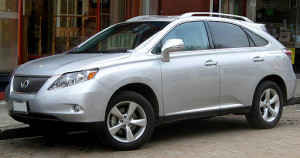 Plenty of people choose to purchase a Lexus and never have any real complaints. They’re highly reliable and are packed with incredible luxuries like soft leather upholstery, seat heaters/ventilation, and wood inlays, to name a few. Lexus has a tremendous reputation for making cars that run smoothly, and interiors that are supremely quiet.
Plenty of people choose to purchase a Lexus and never have any real complaints. They’re highly reliable and are packed with incredible luxuries like soft leather upholstery, seat heaters/ventilation, and wood inlays, to name a few. Lexus has a tremendous reputation for making cars that run smoothly, and interiors that are supremely quiet.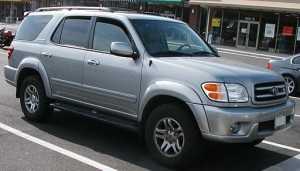 Toyotas are popular for some pretty compelling reasons. Reliability is obviously one, and so is great value retention. Toyotas are plentiful, so you can usually find just the right one without too much hassle. Because they’re popular, it isn’t difficult to find parts, servicing or aftermarket add-ons.
Toyotas are popular for some pretty compelling reasons. Reliability is obviously one, and so is great value retention. Toyotas are plentiful, so you can usually find just the right one without too much hassle. Because they’re popular, it isn’t difficult to find parts, servicing or aftermarket add-ons.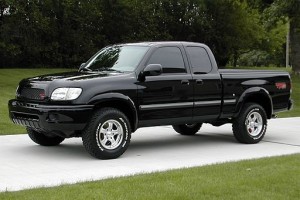 When it first debuted in 1993, the Tundra was called the Toyota T100. It wasn’t until 2000 that the Tundra name was applied to the pickup. Because of the name switch, the truck is technically in its third production generation.
When it first debuted in 1993, the Tundra was called the Toyota T100. It wasn’t until 2000 that the Tundra name was applied to the pickup. Because of the name switch, the truck is technically in its third production generation. The comfort doesn’t stop there. Thanks to the longer wheelbase Toyota uses for the Tundra versus its competitors, the truck takes rough roads and trails with ease. Drivers and passengers will barely feel potholes, speed bumps and rocks as they roll right over them. Add to that the smooth-operating 5.7-liter V-8 engine, which doesn’t make all kinds of unnecessary noise, and you have a pickup that’s more than livable on a daily basis.
The comfort doesn’t stop there. Thanks to the longer wheelbase Toyota uses for the Tundra versus its competitors, the truck takes rough roads and trails with ease. Drivers and passengers will barely feel potholes, speed bumps and rocks as they roll right over them. Add to that the smooth-operating 5.7-liter V-8 engine, which doesn’t make all kinds of unnecessary noise, and you have a pickup that’s more than livable on a daily basis.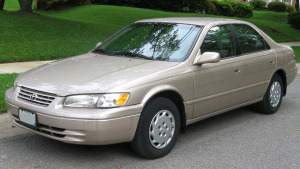 In case you aren’t aware of the history of the Camry, here’s a brief overview. The car originally was launched as the Celica Camry in 1979. It wasn’t a runaway hit overnight, but started to pick up serious momentum in the mid-80s.
In case you aren’t aware of the history of the Camry, here’s a brief overview. The car originally was launched as the Celica Camry in 1979. It wasn’t a runaway hit overnight, but started to pick up serious momentum in the mid-80s. No matter how reliable any car, sooner or later you’ll have to replace parts. The timing belt, brakes, tires, light bulbs, hoses, etc. must be swapped out regularly. Other components such as the alternator or water pump can also eventually wear out.
No matter how reliable any car, sooner or later you’ll have to replace parts. The timing belt, brakes, tires, light bulbs, hoses, etc. must be swapped out regularly. Other components such as the alternator or water pump can also eventually wear out. The hybrid that kicked off a revolution is a tremendous vehicle for families. The US EPA estimates the 2016 model gets up to 58 mpg in the city, so you don’t have to stop at the pump nearly as often. That translates into savings every day, something every family certainly can benefit from.
The hybrid that kicked off a revolution is a tremendous vehicle for families. The US EPA estimates the 2016 model gets up to 58 mpg in the city, so you don’t have to stop at the pump nearly as often. That translates into savings every day, something every family certainly can benefit from. Sometimes you need a truck without all of the usual headaches that come from owning one. The Toyota Tacoma was built for families who are active, which is why a GoPro mount is included on the windshield. Instead of being large and unruly, you’ll find that maneuvering the Tacoma is easy. The backseat is comfortable and large enough to fit child seats without any hassle.
Sometimes you need a truck without all of the usual headaches that come from owning one. The Toyota Tacoma was built for families who are active, which is why a GoPro mount is included on the windshield. Instead of being large and unruly, you’ll find that maneuvering the Tacoma is easy. The backseat is comfortable and large enough to fit child seats without any hassle. Minivans are incredibly practical for families, and the Toyota Sienna is a low-maintenance way to have one. Not only does it include a large interior with room to fit adults on all three rows, it’s loaded with clever storage areas as well. An optional system uses a microphone to project the driver’s voice through the rear speakers, making it unnecessary to yell to have conversations with anyone sitting on the third row.
Minivans are incredibly practical for families, and the Toyota Sienna is a low-maintenance way to have one. Not only does it include a large interior with room to fit adults on all three rows, it’s loaded with clever storage areas as well. An optional system uses a microphone to project the driver’s voice through the rear speakers, making it unnecessary to yell to have conversations with anyone sitting on the third row.








